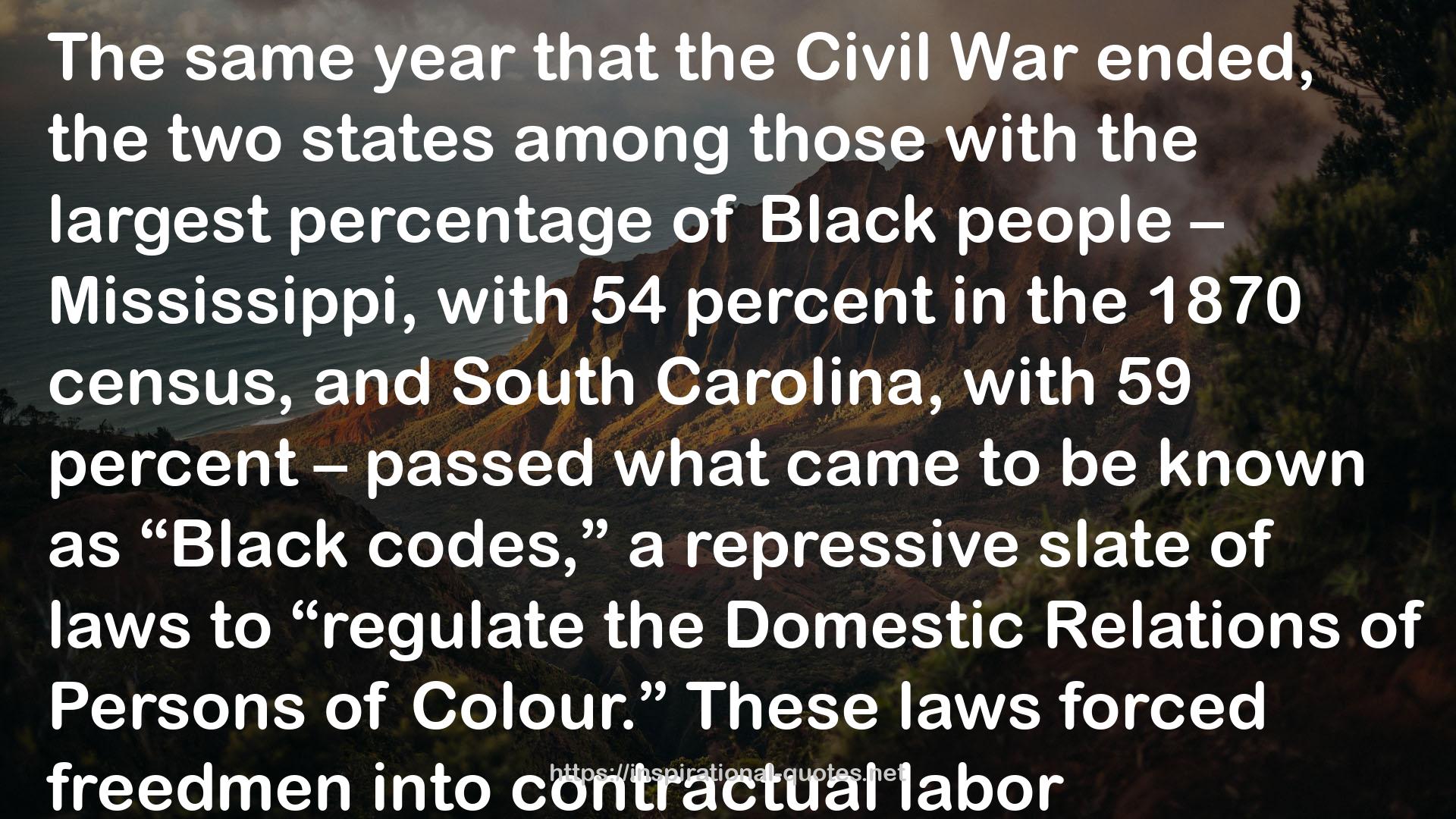" The same year that the Civil War ended, the two states among those with the largest percentage of Black people – Mississippi, with 54 percent in the 1870 census, and South Carolina, with 59 percent – passed what came to be known as “Black codes,” a repressive slate of laws to “regulate the Domestic Relations of Persons of Colour.” These laws forced freedmen into contractual labor agreements, which looked eerily similar to slavery, with white farmers. The South Carolina act even stipulated that “all persons of color who make contracts for service or labor, shall be known as servants, and those with whom they contract, shall be known as masters.” Freedmen without “some lawful and respectable employment” could be charged with vagrancy. They literally made Black unemployment a crime for Black people. "
― Charles M. Blow , The Devil You Know: A Black Power Manifesto
